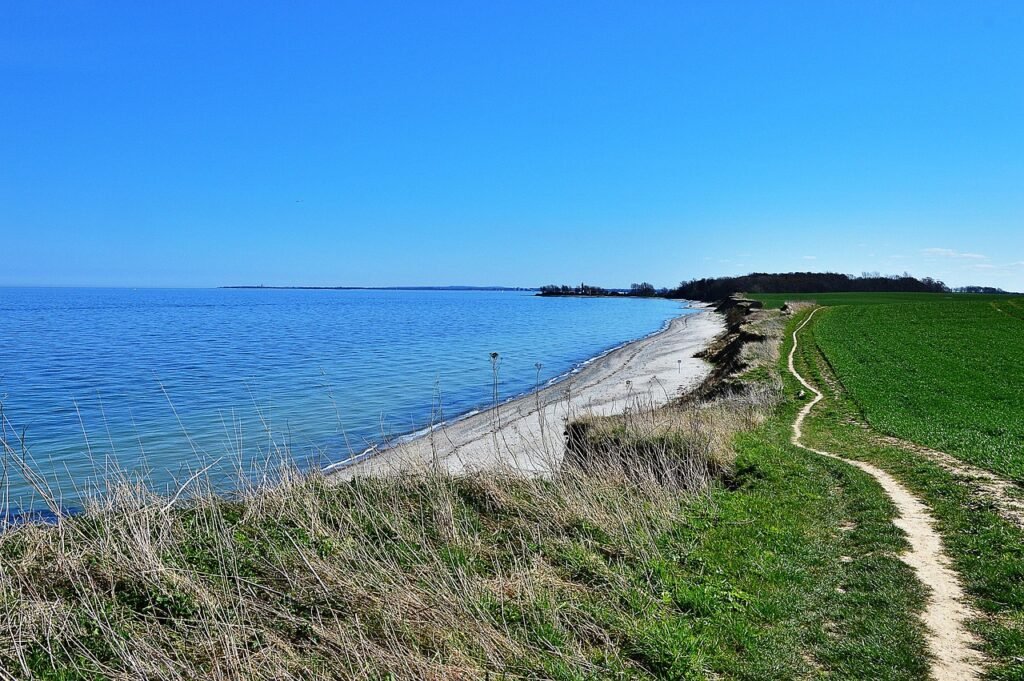Sun, sand, and sea – the allure of the beach is timeless. Whether you’re seeking relaxation under the warm sun, thrilling water sports adventures, or simply the calming rhythm of the waves, beaches offer a diverse range of experiences for everyone. This guide dives into the world of beaches, exploring their unique characteristics, the activities they offer, and how to make the most of your next beach vacation.
Understanding Beach Types
Not all beaches are created equal. Understanding the different types of beaches can help you choose the perfect destination for your next vacation.
Sandy Beaches
The classic beach experience, sandy beaches are formed from eroded rock, coral, and shells. The size and color of the sand can vary greatly depending on the source material.
- White Sand Beaches: Often found in tropical destinations, white sand beaches are typically composed of finely ground coral and shell fragments. Examples include beaches in the Maldives, Bora Bora, and the Caribbean.
- Golden Sand Beaches: More common in temperate climates, golden sand beaches are usually made up of quartz and other minerals. Popular examples include beaches along the Mediterranean coast and the Atlantic coast of Europe.
- Black Sand Beaches: Formed from volcanic activity, black sand beaches are a striking and unique sight. Iceland, Hawaii, and the Canary Islands are known for their black sand beaches.
Example: Reynisfjara Beach in Iceland is famous for its black sand, basalt columns, and powerful waves.
Pebble Beaches
Instead of sand, pebble beaches are covered with small, rounded stones. While they may not be ideal for sunbathing, they offer a different kind of beauty and can be great for rock collecting.
- Formation: Pebble beaches are often formed by wave action that rounds and polishes stones over time.
- Location: Common along rocky coastlines, especially in areas with strong wave action.
Example: Chesil Beach in Dorset, England, is a prominent example of a pebble beach.
Shell Beaches
Composed primarily of broken shells, shell beaches are a unique and often fragile ecosystem. They can be visually stunning but may be less comfortable for walking and sunbathing.
- Fragility: Shell beaches are susceptible to erosion and damage from human activity.
- Biodiversity: Often support a diverse range of marine life.
Example: Shell Beach in Shark Bay, Western Australia, is made up entirely of tiny cockle shells and is a UNESCO World Heritage site.
Activities and Recreation
Beaches offer a wide range of activities to suit every interest and energy level.
Water Sports
From gentle paddling to adrenaline-pumping thrills, water sports are a popular beach activity.
- Swimming: Always swim within designated areas and be aware of currents and tides.
- Surfing: Requires skill and practice, but can be incredibly rewarding. Consider taking a lesson from a certified instructor.
Popular Surfing Destinations: Bondi Beach (Australia), Waikiki Beach (Hawaii), Nazare (Portugal).
- Snorkeling and Diving: Explore the underwater world and discover colorful coral reefs and marine life.
Ensure you have proper equipment and training.
- Kayaking and Paddleboarding: A great way to explore the coastline and get some exercise.
Rentals are often available at popular beaches.
- Jet Skiing: An exhilarating way to speed across the water.
Follow safety guidelines and regulations.
Relaxation and Sunbathing
For many, the beach is a place to unwind, soak up the sun, and escape the stresses of daily life.
- Sunbathing Tips:
Use sunscreen with a high SPF.
Reapply sunscreen every two hours, or more frequently if swimming or sweating.
Stay hydrated by drinking plenty of water.
Take breaks in the shade to avoid overheating.
- Reading and Listening to Music: Bring a book or your favorite playlist for a relaxing beach experience.
- Meditation and Yoga: Find a quiet spot on the beach and practice mindfulness and relaxation techniques.
Beach Games and Activities
Perfect for families and groups, beach games offer a fun and active way to enjoy the beach.
- Volleyball: A classic beach game that’s easy to set up and play.
- Frisbee: A simple and fun activity for all ages.
- Building Sandcastles: A creative and engaging activity for kids and adults alike.
- Beachcombing: Search for shells, sea glass, and other treasures washed ashore.
Beach Safety and Etiquette
Protecting yourself and respecting the environment are essential for a positive beach experience.
Safety Tips
Prioritize your safety by following these guidelines:
- Swim Safety:
Always swim in designated areas with lifeguards present.
Be aware of currents, tides, and weather conditions.
Never swim alone.
- Sun Safety:
Use sunscreen with a high SPF.
Wear a hat and sunglasses.
Seek shade during peak sun hours.
- Rip Currents:
Learn how to identify rip currents.
If caught in a rip current, swim parallel to the shore until you are out of the current, then swim to shore.
- Hydration: Drink plenty of water to avoid dehydration.
- First Aid: Familiarize yourself with the location of first aid stations and emergency services.
Beach Etiquette
Respect the beach and other beachgoers by following these guidelines:
- Leave No Trace: Pack out everything you pack in, including trash.
- Respect Wildlife: Observe marine life from a distance and avoid disturbing their habitat.
- Keep Noise Levels Down: Be mindful of noise levels and avoid playing loud music.
- Respect Personal Space: Give other beachgoers plenty of space.
- Clean Up After Pets: If you bring a pet, clean up after them and keep them on a leash.
- Follow Local Regulations: Be aware of and follow local beach regulations.
Choosing the Right Beach Destination
Selecting the perfect beach destination depends on your preferences and priorities.
Factors to Consider
- Climate: Consider the weather and temperature of the destination.
- Water Temperature: Choose a beach with water temperatures that are comfortable for swimming.
- Activities: Select a beach that offers the activities you enjoy.
- Crowds: Some beaches are more crowded than others. Consider your tolerance for crowds.
- Accessibility: Ensure the beach is easily accessible and has adequate facilities.
- Budget: Beach destinations can range from budget-friendly to luxurious.
Popular Beach Destinations
- Tropical Beaches:
Maldives: Known for its pristine white sand beaches and crystal-clear waters.
Bora Bora: Famous for its luxurious resorts and stunning lagoons.
Maui, Hawaii: Offers a variety of beaches, from calm bays to powerful surf breaks.
- European Beaches:
Costa Brava, Spain: Known for its rugged coastline and beautiful beaches.
Greek Islands: Offer a variety of beaches, from sandy coves to pebbly shores.
French Riviera: Famous for its glamorous beaches and upscale resorts.
- American Beaches:
Miami Beach, Florida: Known for its vibrant nightlife and iconic Art Deco architecture.
Outer Banks, North Carolina: Offers a variety of beaches, from calm sounds to powerful ocean waves.
California Coast: Features a diverse range of beaches, from sandy stretches to rocky cliffs.
Protecting Our Beaches
Beaches are fragile ecosystems that are vulnerable to pollution, erosion, and climate change.
Environmental Issues
- Pollution: Plastic pollution, oil spills, and sewage runoff can damage marine life and contaminate beaches.
- Erosion: Rising sea levels and storm surges can erode beaches and damage coastal ecosystems.
- Climate Change: Rising temperatures and ocean acidification can impact marine life and coral reefs.
How to Help
- Reduce Your Plastic Consumption: Use reusable water bottles, shopping bags, and containers.
- Properly Dispose of Trash: Never litter on the beach.
- Support Sustainable Tourism: Choose eco-friendly resorts and tour operators.
- Participate in Beach Cleanups: Volunteer to help clean up beaches in your community.
- Educate Others: Raise awareness about the importance of protecting our beaches.
- Support Conservation Organizations: Donate to organizations that work to protect coastal ecosystems.
Conclusion
Beaches offer something for everyone, from relaxation and recreation to adventure and discovery. By understanding the different types of beaches, prioritizing safety, and respecting the environment, you can make the most of your next beach vacation. Remember to leave no trace, support sustainable practices, and help protect these precious coastal ecosystems for future generations to enjoy. So, pack your bags, grab your sunscreen, and get ready to experience the magic of the beach!

